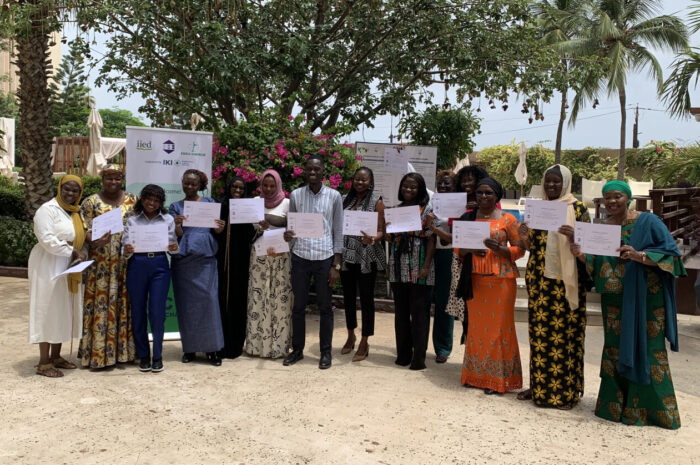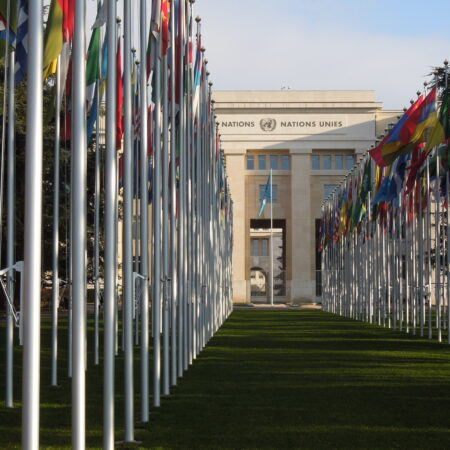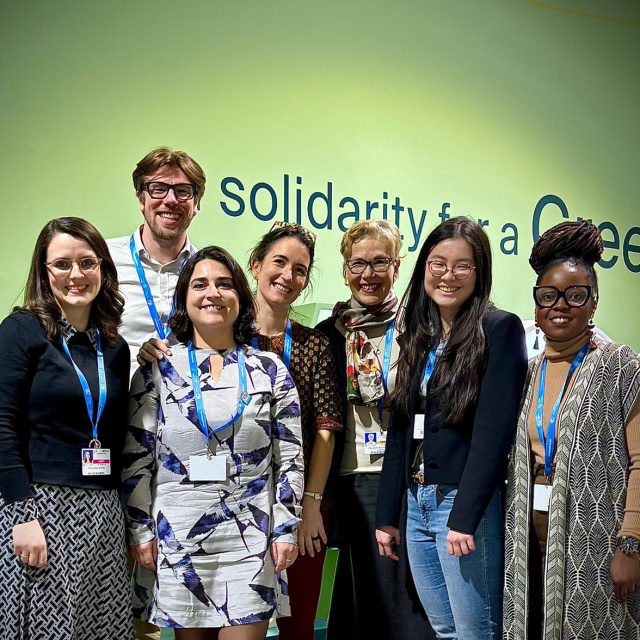The UN climate negotiations are among the most complex international processes ever established — full of technical language, legal principles, and procedural rules. Yet many of the countries most vulnerable to climate change do not have access to the same legal resources as wealthier nations.
Consider this: in the U.S. there is 1 lawyer for every 249 people, in the UK there’s 1 for every 442. Yet, in Ghana this number jumps to nearly 1 for every 14,000. In Burkina Faso, it is closer to 1 for every 125,000.*
This imbalance makes it harder for developing countries to influence international decision-making or implement international commitments effectively at home.
At LRI, we work to close this gap.
With a small staff and a global network of expert volunteers, we:
- Provide free, high-quality legal advice to developing country climate negotiators and civil society.
- Support governments in reviewing and strengthening climate laws and policies.
- Build long-term capacity through training and knowledge-sharing.
Together with our community of volunteers, law firms, universities, partners, and donors, we strive to ensure all countries — no matter their capacity or resources — have the legal tools to drive ambitious climate action.
* Lawyers per capita by Country 2025. World Population Review. Retrieved August 18, 2025, from https://worldpopulationreview.com/country-rankings/lawyers-per-capita-by-country
“A truly remarkable experience. The exposure and knowledge I gained through LRI is not easily accessed in countries like Papua New Guinea.”
Oliver Nobetau, Papua New Guinea
LRI at a Glance
Our Global Network & Reach
Volunteer Engagement
Training & Knowledge Sharing
Strategic Evolution: Responding to Emerging Needs
In 2022, LRI undertook a strategic review to assess how our work could evolve in response to shifting global needs and the growing complexity of the legal climate landscape to better support developing countries.
The review confirmed:
- A widening legal capacity gap, both internationally and domestically
- Rising demand for structured, long-term legal training
- The need to strengthen regional networks and implementation ecosystems
- Increasing calls to translate international agreements into domestic law
- The importance of ensuring our expert network evolves with the field
- The uniqueness of LRI’s service and its trusted standing with delegates

In response, we have:
- Launched modular legal training programmes tailored to different audiences
- Expanded support for the review and development of national climate legislation, including framework laws
- Deepened collaboration with regional organisations and negotiation groups to enhance long-term and sustained capacity
- Enhanced coordination and knowledge exchange across our global expert network and partner institutions
- Continued to deliver real-time legal assistance ahead and during climate negotiations
- Boosted the production of explainers and knowledge products, including in different languages to reach more delegates and stakeholders
We are also exploring:
- Regional legal hubs to foster peer learning and sustained local expertise (starting with sub-Saharan Africa)
- New training formats adapted to regional priorities and needs
- Tools and resources to support continuous learning for our pro bono advisers
This shift marks a move from purely reactive support to a more proactive, systems-strengthening approach, grounded in the belief that fair, effective climate governance depends on lasting legal capacity across all levels.
Challenges We Face
Despite progress, several challenges shape LRI’s work:
Limited resources
We are a small organisation with global reach. Demand for direct, in-person training often exceeds what our staff and funding allow. Online tools extend our reach, but some skills and relationships are best built face-to-face.
Scaling a volunteer-based model
Our legal advice relies on pro bono support. Coordinating this network, ensuring quality control, and providing ongoing training all require significant time and investment. Sustaining and expanding it is a continuing priority.
Keeping legal expertise current
Climate law evolves rapidly. Many advisers contribute alongside full-time jobs, making timely briefings and peer exchange vital for maintaining relevance and rigor.
Navigating politically complex settings
As we expand, we work in diverse political, social, and cultural contexts. Preserving trust, neutrality, and contextual insight is critical to our effectiveness.

We remain committed to providing fair, flexible, and principled legal support to countries lacking in legal capacity.
Looking Ahead
The scale of the climate crisis demands bold, sustained action, and legal capacity is a cornerstone of that response. While we continue to face real challenges, they are matched by the commitment, creativity, and collaboration of our team and global network of advisers and supporters.
At LRI, we have seen firsthand how access to legal expertise can shift outcomes — be it in negotiation rooms, national parliaments, or local communities. Every legal opinion we provide, every training we deliver, and every partnership we build is part of a wider movement toward fairness, equity, and climate resilience.
As we look to the future, we remain focused on strengthening legal systems from the ground up, investing in long-term capacity, and expanding the reach of climate justice. With continued support, we are confident that the next 15 years will be even more impactful.


Thank You
To our volunteers, collaborators, and funders: thank you.
You have helped LRI become a unique, trusted, and principled presence in international climate law. Your support empowers developing countries to engage more equitably in negotiations, and to turn international commitments into legal realities at home.
We look forward to the next phase of this journey, and to deepening our impact in the years ahead.
Find out more about how we work to deliver on our mission of empowering developing countries to shape climate negotiations and to advance their national policies.
Our Work
